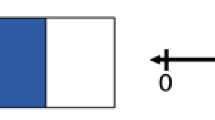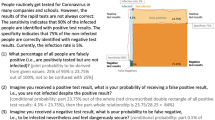Abstract
Learning with multiple graphical representations is effective in many instructional activities, including fractions. However, students need to be supported in understanding the individual representations and in how the representations relate to one another. We investigated (1) whether interactive manipulations of graphical representation support a deeper understanding of the representations compared to static graphics and (2) whether connection-making activities help students better understand the relations between representations. In a study with 312 4th and 5th grade students we found that interactive representations were indeed more effective in improving student fraction learning compared to static fraction graphics, especially for students yet unfamiliar with the topics being taught. We found no effect for connection-making activities. The results suggest that domains with (multiple) representations are best taught with tutor-guided student manipulation of these graphics rather than with static pictures.
Access this chapter
Tax calculation will be finalised at checkout
Purchases are for personal use only
Similar content being viewed by others
References
Ainsworth, S., Bibby, P., Wood, D.: Examining the effects of different multiple representational systems in learning primary mathematics. Journal of the Learning Sciences 11(1), 25–61 (2002)
Aleven, V., McLaren, B.M., Sewall, J.: Scaling up programming by demonstration for intelligent tutoring systems development: An open-access website for middle-school mathematics learning. IEEE Transactions on Learning Technologies 2(2), 64–78 (2009), http://www.computer.org/portal/web/csdl/doi/10.1109/TLT.2009.22
Aleven, V., McLaren, B.M., Sewall, J., Koedinger, K.R.: A new paradigm for intelligent tutoring systems: Example-tracing tutors. Journal for Research in Mathematics Education 5(24), 428–441 (2009); Carpenter, T.P., Ansell, E., Franke, M.L., Fennema, E., Weisbeck, L.: Model of problem solving: A study of kindergarten children’s problem processes. Journal for Research in Mathematics Education 5(24), 428–441 (1993)
Gelman, A., Hill, J.: Data Analysis using Regression and Multilevel/Hierarchical Models. Cambridge University Press, New York (2007)
Rau, M.A., Aleven, V., Rummel, N.: Blocked versus Interleaved Practice with Multiple Representations in an Intelligent Tutoring System for Fractions. In: Aleven, V., Kay, J., Mostow, J. (eds.) ITS 2010. LNCS, vol. 6094, pp. 413–422. Springer, Heidelberg (2010)
Author information
Authors and Affiliations
Editor information
Editors and Affiliations
Rights and permissions
Copyright information
© 2011 Springer-Verlag Berlin Heidelberg
About this paper
Cite this paper
Feenstra, L., Aleven, V., Rummel, N., Rau, M., Taatgen, N. (2011). Thinking with Your Hands: Interactive Graphical Representations in a Tutor for Fractions Learning. In: Biswas, G., Bull, S., Kay, J., Mitrovic, A. (eds) Artificial Intelligence in Education. AIED 2011. Lecture Notes in Computer Science(), vol 6738. Springer, Berlin, Heidelberg. https://doi.org/10.1007/978-3-642-21869-9_67
Download citation
DOI: https://doi.org/10.1007/978-3-642-21869-9_67
Publisher Name: Springer, Berlin, Heidelberg
Print ISBN: 978-3-642-21868-2
Online ISBN: 978-3-642-21869-9
eBook Packages: Computer ScienceComputer Science (R0)




